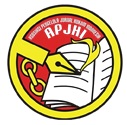Basic Needs as the Foundation of Consumer Behavior: An Analytical Study of Al-Ghazali's Thought
(1) Postgraduate Program of Islamic Economics and Law University of Darussalam Gontor
(2) Postgraduate Program of Islamic Economics and Law University of Darussalam Gontor
(3) Postgraduate Program of Islamic Economics and Law University of Darussalam Gontor
(4) Postgraduate Program of Islamic Economics and Law University of Darussalam Gontor
(*) Corresponding Author
Abstract
Keywords: Consumer behavior, Islamic Economics, Society, Al-Ghazali
Full Text:
PDFReferences
Amri, Hoirul. (2017). ‘Kelemahan Sistem Ekonomi Kapitalisme Dan Sosialisme Menurut Muhammad Sharif Chaudhry Dalam Karyanya Fundamental of Islamic Economic System.’ Economica Sharia 2(2): 1–16.
Arifah, Ika Diyah Candra. (2020). ‘Revisiting Green Marketing Implementation in Halal Cosmetic Brands.’ al-Uqud : Journal of Islamic Economics 4(2): 285.
Fatah, Raden. (2016). ‘Integritas Pendidikan Agama Islam Terhadap Ilmu Pengetahuan & Teknologi.’ Tadrib II(1): 2.
Frank R. Kardes, Maria L. Cronley, dan Thomas W. Cline. (2011). Consumer Behavior. Mason: South-Western Cenggage Learning.
Gunawijaya, Rahmat. (2017_. ‘Kebutuhan Manusia Dalam Pandangan Ekonomi Kapitalis Dan Ekonomi Islam.’ Al-Maslahah Jurnal Ilmu Syariah 13(1): 131.
Hamid, Abdul. (2018). ‘Teori Konsumsi Islam Dalam Peningkatan Ekonomi Umat.’ Jurnal Visioner & Strategis 7(September): 204–16.
Harahap, Soritua Ahmad Ramdani, Muhammad Ulul Azmi, and Achmad Arif. (2020). ‘Muslim Consumer Behavior in the Sharia Maqosid Perspective.’ Ijtihad : Jurnal Hukum dan Ekonomi Islam 14(1): 119.
Harahap, Soritua Ahmad Ramdani et.all. (2019). ‘Pembangunan Ekonom Islam Melalui Peran Sumber Daya Manusia.’ Al-Mustashfa: Jurnal Penelitian Hukum Ekonomi Syariah 6(1).
Hardani. (2020). Metode Penelitian Kualitatif & Kuantitatif. Pustaka Ilmu.
Heri Sudarsono. (2002). Konsep Ekonomi Islam: Suatu Pengantar. Yogyakarta: Konisia.
Ikrom, Mohamad. (2015). ‘Pemikiran Ekonomi Al Ghazali - Ali Ridwan.’ Al-Iqtishadi 2(1): 51–66.
Ilyin, Vladimir Ivanovich. (2022). ‘Consumerism.’ Общенациональный интерактивный ÑнциклопедичеÑкий портал ‘ЗнаниÑ’ (4).
Imam Abu Hamid Al-Ghazali. (1106). Al-Musthasfa. Darul Kutub Al-Ilmiyyah.
———. (1897). Ihya Ulumuddin. Darul Fikr, Beirut.
Kamaluddin, Imam, Setiawan Bin Lahuri, and Chindy Chintya Cahya. (2022). ‘Keabsahan Uang Elektronik (E-Money) Perspektif Qawa’Id Fiqhiyah: Sebuah Tinjauan Empiris Terhadap Kritik Uang Elektronik.’ Muslim Heritage 7(1).
Muhamamad. (2004). NoEkonomi Mikro Dalam Prespektif Islam Title. Yogyakarta: BPFE-Yogyakarta.
Ngasifudin, Muhammad. (2018). ‘Rasionalitas Dalam Ekonomi Islam.’ JESI (Jurnal Ekonomi Syariah Indonesia) 7(2): 111.
Novi Indriyani Sitepu. (2016). ‘Perilaku Konsumsi Islam Di Indonesia.’ Jurnal Perspektif Ekonomi Islam 2(1): hlm. 92–106.
Nur Rianto. (2017). Pengantar Ekonomi Syariah Teori Dan Praktik. Bandung: Pustaka Setia.
Nurrofiq. (2015). ‘Permasalahan Ekonomi Dalam Kaitannya Dengan Kebutuhan Manusia, Kelangkaan Dan Sistem Ekonomi.’ al-maslahah 13(1): 3.
Raco, R. (2010). Metode Penelitian Kualitatif, Jenis, Karakteristik Dan Keunggulannya. Jakarta: PT Gramedia Pustaka.
Rahman, Aulia, and Muh Fitrah. (2018). ‘Perilaku Konsumsi Masyarakat Dalam Perspektif Islam Di Kelurahab Berombang Koto Makassar.’ Laa Maisyir 5(1): 18–43.
Ririn Handayani. (2020). Metode Penelitian Sosial. Yogyakarta: Trussmedia Grafika.
Roach, Brian, Neva Goodwin, and Julie Nelson. (2019). ‘Consumption and the Consumer Society | A GDAE Teaching Module on Social and Environmental Issues in Economics.’ Global Development And Environment Institute, Tufts University (Chapter 8 from: Microeconomics in Context, Fourth Edition.): 1–2.
Setiawan, Iwan. (2020). ‘Consumer Community in Islamic Economic Study.’ al-Ulum 20(1): 145–66.
Syahrin Harahap. (1999). Islam, Konsep Dan Implementasi Pemberdayaan. Yogyakarta: PT. Tiara Wacana Yogya.
Syamsuri, Syamsuri, and Soritua Ahmad Ramdani Harahap. (2019). ‘Analysis of Human Resources Development in Ydsf Surabaya on Islamic Economic Perspective.’ al-Uqud : Journal of Islamic Economics 3(1): 34.
Syaputra, Elvan. (2017). ‘Perilaku Konsumsi Masyarakat Modern Perspektif Islam: Telaah Pemikiran Imam Al-Ghazali Dalam Ihya’ Ulumuddin.’ FALAH: Jurnal Ekonomi Syariah 2(2): 144.
Umar Chapra. (1999). Islam Dan Tantangan Ekonomi. Jakarta: The Islamic Foundation.
Wiharto, Slamet, Miyasto, Tatik Mariyanti, and Aa Mahfudz. (2021). ‘Factors That Influence Trust of E- Commerce Consumers and Its Implications on Muslim Consumers Participation in I ...’ International Journal of Arts and Social Science 4(1): 64–73.
Yani, Muhammad Turhan, and Sri Abidah Suryaningsih. (2019). ‘Muslim Consumer Behavior and Halal Product Consumption.’ al-Uqud : Journal of Islamic Economics 3(2): 161.
Yusof, Rosylin Mohd, Akhmad Affandi Mahfudz, and Sabariah Yaakub. (2019). ‘Halal Trade Finance and Global Well-Being: Here Come the Millennials BT - Contemporary Management and Science Issues in the Halal Industry.’ In eds. Faridah Hassan et al. Singapore: Springer Singapore, 469–94.
DOI: 10.24235/jm.v9i2.16764
Article Metrics
Abstract view : 102 timesPDF - 16 times
Refbacks
- There are currently no refbacks.
Al Mustashfa Indexed by:
Reference Management Tool

This work is licensed under a Creative Commons Attribution 4.0 International License.













